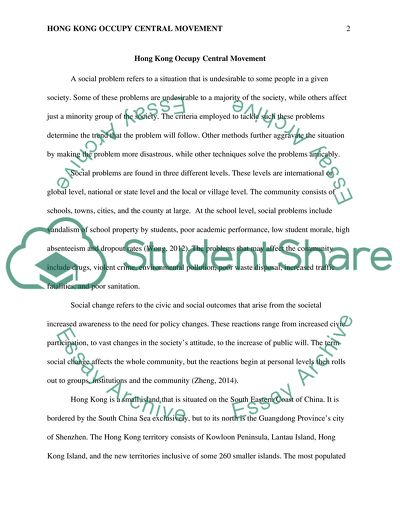Cite this document
(Social Changes in Hong Kong Research Paper Example | Topics and Well Written Essays - 1750 words, n.d.)
Social Changes in Hong Kong Research Paper Example | Topics and Well Written Essays - 1750 words. Retrieved from https://studentshare.org/politics/1866646-social-change-hong-kong-occupy-central-movement
Social Changes in Hong Kong Research Paper Example | Topics and Well Written Essays - 1750 words. Retrieved from https://studentshare.org/politics/1866646-social-change-hong-kong-occupy-central-movement
(Social Changes in Hong Kong Research Paper Example | Topics and Well Written Essays - 1750 Words)
Social Changes in Hong Kong Research Paper Example | Topics and Well Written Essays - 1750 Words. https://studentshare.org/politics/1866646-social-change-hong-kong-occupy-central-movement.
Social Changes in Hong Kong Research Paper Example | Topics and Well Written Essays - 1750 Words. https://studentshare.org/politics/1866646-social-change-hong-kong-occupy-central-movement.
“Social Changes in Hong Kong Research Paper Example | Topics and Well Written Essays - 1750 Words”, n.d. https://studentshare.org/politics/1866646-social-change-hong-kong-occupy-central-movement.


